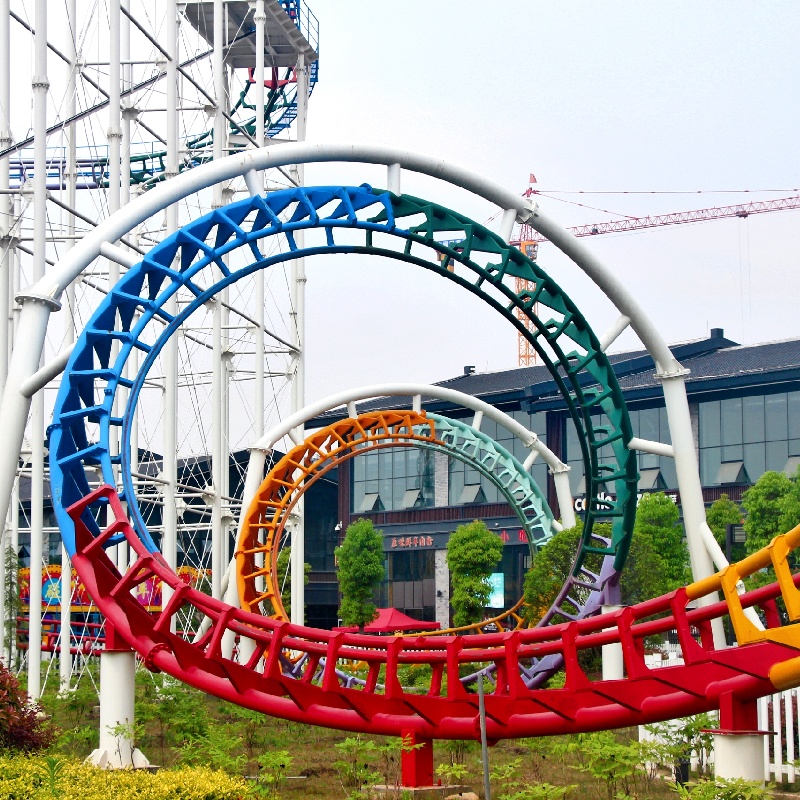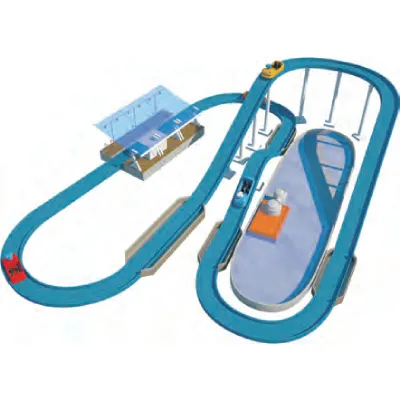- Albanian
- Arabic
- Belarusian
- Bengali
- Czech
- English
- French
- German
- Hebrew
- Hungarian
- Indonesian
- irish
- Italian
- Japanese
- kazakh
- Persian
- Russian
- Thai
- Uzbek
- Vietnamese
Feb . 17, 2025 14:37
Back to list
Suspended Roller Coaster
Roller coasters are the heart of any amusement park, offering thrilling experiences that can be both exhilarating and unforgettable. When considering the purchase of roller coasters for your amusement park, it's essential to navigate the market with a keen sense of experience, expertise, authoritativeness, and trustworthiness. As seasoned experts in the amusement industry, understanding these key elements can greatly enhance the decision-making process and ultimately lead to a successful investment.
Authoritativeness in the roller coaster sales domain builds from associating with reputable manufacturers and sales platforms. There are global leaders in roller coaster production known for their cutting-edge designs and safety records. Partnering with these established names not only ensures a reliable product but also boosts the park’s credibility among visitors. When looking to purchase, it’s advisable to review industry accolades, certifications, and testimonials, ensuring the manufacturer has a proven track record in delivering high-quality attractions. Trustworthiness is established through transparent negotiations and clear contractual agreements with roller coaster sellers. When venturing into the market, clarity in pricing, delivery schedules, and post-sale support is essential. Due diligence involves verifying the seller’s credentials and reviewing past sales to other amusement parks. Engaging with industry forums and networks can also provide honest reviews and potential red flags to consider. Trust is further reinforced when purchase agreements include comprehensive warranties and service terms that cover the installation and operational phases. Purchasing a roller coaster is not merely an acquisition; it's a strategic investment in an amusement park's future. From understanding evolving safety standards to leveraging modern design trends, the process demands a blend of intuition, research, and expert consultations. Balancing these elements can transform an amusement park's landscape, setting the stage for increased footfall and enhanced guest satisfaction. By adhering to principles of experience, expertise, authoritativeness, and trustworthiness, amusement park owners can confidently navigate the market for roller coasters for sale and ensure that their investment propels their park to new heights of success.


Authoritativeness in the roller coaster sales domain builds from associating with reputable manufacturers and sales platforms. There are global leaders in roller coaster production known for their cutting-edge designs and safety records. Partnering with these established names not only ensures a reliable product but also boosts the park’s credibility among visitors. When looking to purchase, it’s advisable to review industry accolades, certifications, and testimonials, ensuring the manufacturer has a proven track record in delivering high-quality attractions. Trustworthiness is established through transparent negotiations and clear contractual agreements with roller coaster sellers. When venturing into the market, clarity in pricing, delivery schedules, and post-sale support is essential. Due diligence involves verifying the seller’s credentials and reviewing past sales to other amusement parks. Engaging with industry forums and networks can also provide honest reviews and potential red flags to consider. Trust is further reinforced when purchase agreements include comprehensive warranties and service terms that cover the installation and operational phases. Purchasing a roller coaster is not merely an acquisition; it's a strategic investment in an amusement park's future. From understanding evolving safety standards to leveraging modern design trends, the process demands a blend of intuition, research, and expert consultations. Balancing these elements can transform an amusement park's landscape, setting the stage for increased footfall and enhanced guest satisfaction. By adhering to principles of experience, expertise, authoritativeness, and trustworthiness, amusement park owners can confidently navigate the market for roller coasters for sale and ensure that their investment propels their park to new heights of success.
Next:
Latest news
-
Flume Ride-Hebei Zhipao Amusement Equipment Manufacturing Co., Ltd.|thrilling water attraction&safety standardsAug.07,2025
-
Flume Ride-Hebei Zhipao Amusement Equipment Manufacturing Co., Ltd.|thrilling water attraction&safe high-speed designAug.07,2025
-
Flume Ride Fun: Explore Thrilling Water CoastersAug.07,2025
-
Flume Ride-Hebei Zhipao Amusement Equipment Manufacturing Co., Ltd.|Water Thrill, Safety DesignAug.07,2025
-
Flume Ride: Thrilling Water Attraction | Hebei ZhipaoAug.07,2025
-
Flume Ride-Hebei Zhipao|High-Speed Water Coaster&Safety-First DesignAug.06,2025
